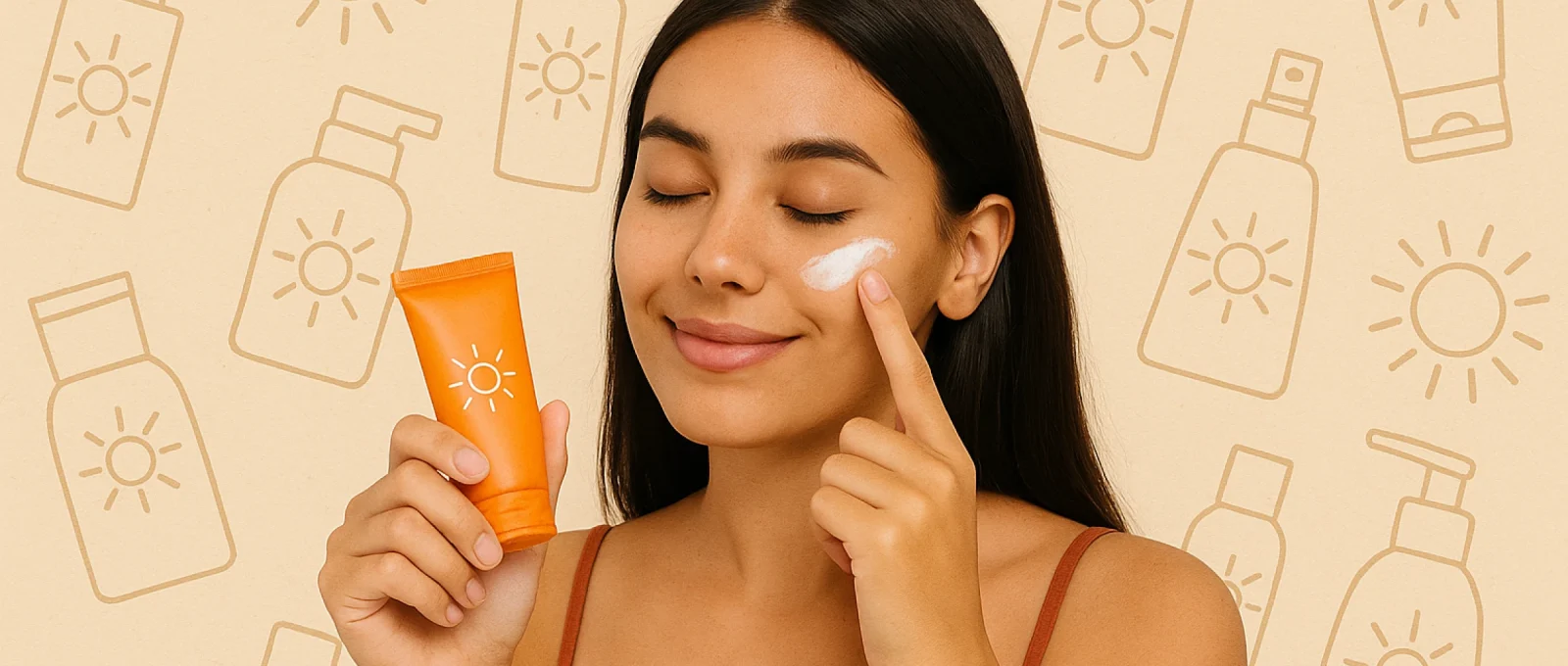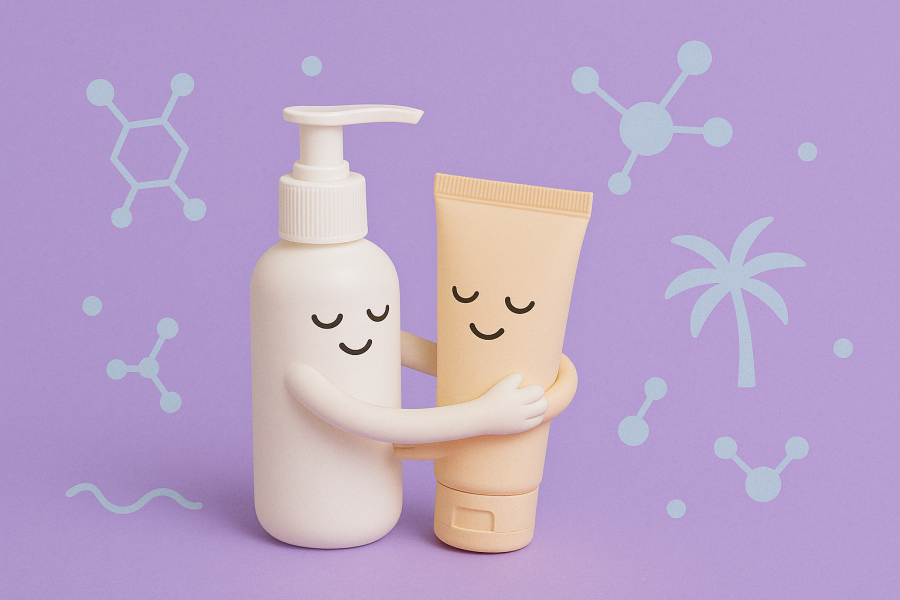SPF is your best anti-aging ally — but there’s still way too much misinformation around it. Let’s bust the most common myths.

5 Sunscreen Myths You Need to Stop Believing
It might seem like sun protection is already a non-negotiable part of a skincare routine. Yet the same questions pop up year after year: “Why bother in winter?” “Won’t it block my vitamin D?” “But my skin is naturally dark…” While some people reapply SPF religiously every two hours, others think it’s overkill. Time to set the record straight — here are five myths we hear most often, and why they’re wrong.
Myth 1: SPF is only for summer
Truth: UVA rays — the ones responsible for photoaging — are present all year round, even on cloudy days. They can penetrate clouds, glass, and reach you even if you’re just sitting by a window. Sunscreen should be a daily habit, not just a beach-day extra.
Myth 2: SPF blocks vitamin D production
Truth: Using sunscreen daily does not cause vitamin D deficiency. In reality, you still get some UV exposure — through your hands, face, and during quick walks outside. If you do have low vitamin D, the solution is a well-chosen supplement, not skipping sunscreen.
Myth 3: Dark skin doesn’t need protection
Truth: While melanin offers some natural defense, it’s not enough. Darker skin can still develop photoaging, hyperpigmentation, and, in some cases, skin cancer. SPF is essential for all skin tones.
Myth 4: Makeup with SPF is enough
Truth: The amount of foundation or powder we apply isn’t nearly enough to give the full SPF protection stated on the label. For SPF 30, you’d need about ¼ teaspoon just for your face — far more than most people use in makeup. SPF in cosmetics is a nice bonus, but it’s not a substitute for sunscreen.
Myth 5: One application a day is enough
Truth: It depends on your sunscreen type and sun exposure. In the city, chemical SPF may last without reapplication, but physical (mineral) SPF needs reapplying every 2–3 hours. In summer, on vacation, during long sun exposure or heavy sweating, any sunscreen should be reapplied. For on-the-go touch-ups, SPF mists, sticks, or powders are great options.
In short
Sunscreen isn’t just about the beach — it’s about keeping your skin healthy and youthful every single day. The sooner SPF becomes part of your routine, the lower your chances of facing pigmentation, wrinkles, or skin issues in the future.



Leave a Comment